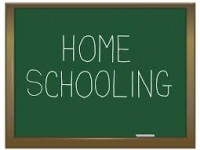
Homeschool Academics in Numbers: Useful Research Data and Takeaways
The Number of Homeschoolers Continues to Grow!
What was alternative a decade or two ago appears a mainstream today. Homeschooling has become the fastest-growing form of education in the United States. In spring 2010, it was estimated that two million kids were home educated in the U.S.. In the spring of 2016, 2.3 million kids (estimated again) were being homeschooled.
Homeschooling is growing in other countries as well, including Canada, Japan, France, the United Kingdom, South Korea, and Russia.
Homeschoolers Like the Experience!
The Home School Legal Defense Association asked over 11,000 homeschooled adults their thoughts on their parents’ choice to homeschool. Results speak volumes:
- 95% were glad they had been homeschooled
- 92% considered homeschooling advantageous to them
- 82% would homeschool their kids, too
Homeschool Students Do Well!
Back in 2009, Dr. Brian Ray from the National Home Education Research Institute invited 11,739 homeschooled students from all 50 states to take three tests. He wanted to learn their academic achievements compared to those of public schools students. The tests they took were the Stanford Achievement Test, the Iowa Tests of Basic Skills, and the California Achievement Test.
Results impress, and here is the takeaway:
“Overall the study showed significant advances in homeschool academic achievement as well as revealing that issues such as student gender, parents’ education level, and family income had little bearing on the results of homeschooled students.”
Average scores:
Reading – 89
Language – 84
Math – 84
Science – 86
Social Studies – 84
In 2016, Dr. Ray published additional research facts on homeschooling. He found that “the home-educated typically score 15 to 30 percentile points above public-school students on standardized academic achievement tests” and they “typically score above average on the SAT and ACT tests that colleges consider for admissions.”
Dr. Brian Ray also confirmed that homeschoolers do well on measures of social and psychological development. Engaged in social activities outside their homes, students develop leadership skills, self-concept, and self-esteem. Several studies takeaways support Dr. Ray’s statements:
- “The average overall score for the homeschooled children on communication, daily living skills, socialization, and social maturity subscales was at the 84th percentile compared to the 23rd percentile for the traditionally schooled students.”
- “Applying a Social Skills Rating System to evaluate thirty-four pairs of homeschooled and traditionally schooled children between the ages of five and eighteen, researchers found that homeschooled children achieved higher scores on this scale than conventionally educated students.”
- “The study using the Vineland Adaptive Behavior Scale, a well-tested diagnostic tool for measuring communication and daily living skills, found that homeschooled students substantially outperformed traditionally schooled students.”
Interesting!
About the author:
Mike Hanski is a writer and former research associate at USC. You can check out his article 48 Ideas on How to Improve the US Education System here.
Latest Posts

Guest Post by Gabriel Morse For several years, I sat for long hours every day behind one of those battleship gray desks in a windowless, dull, gray office. The pay was enough to take care…
Read more >
This post is sponsored by Little Monsters Universe. I'm Tina Salmanowitz, an advocate for homeschooling and science education. With over a decade of experience as a science educator (in class…
Read more >
This post is sponsored by Time4Learning. Before the pandemic, it was business as usual for Boca Raton resident Nikki Warris. Her two daughters, 5-year-old Natalie and 8-year-old Lexi were…
Read more >

